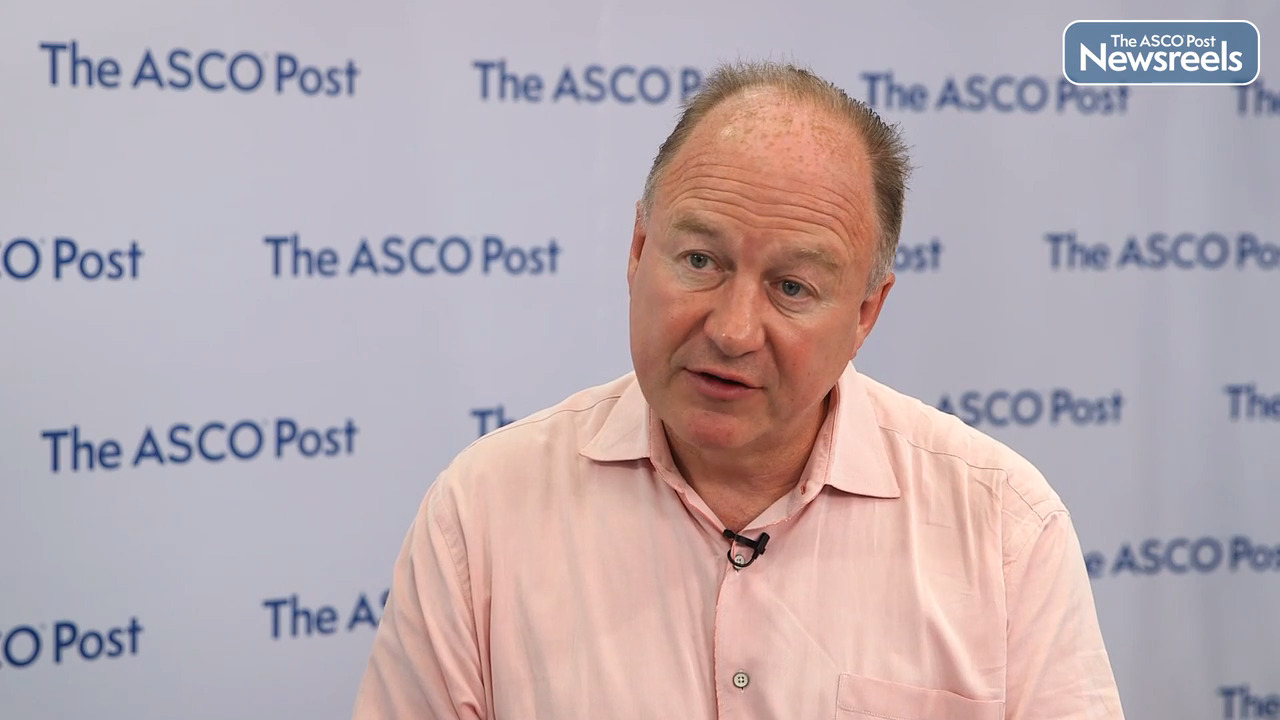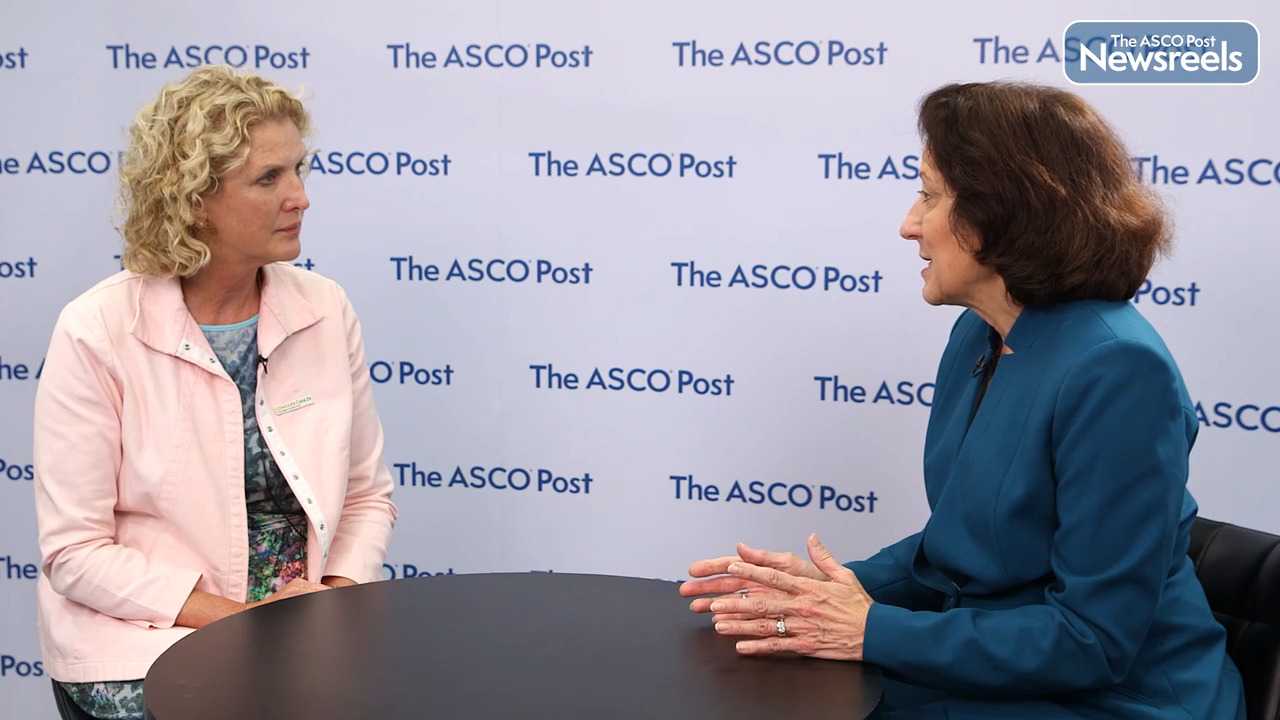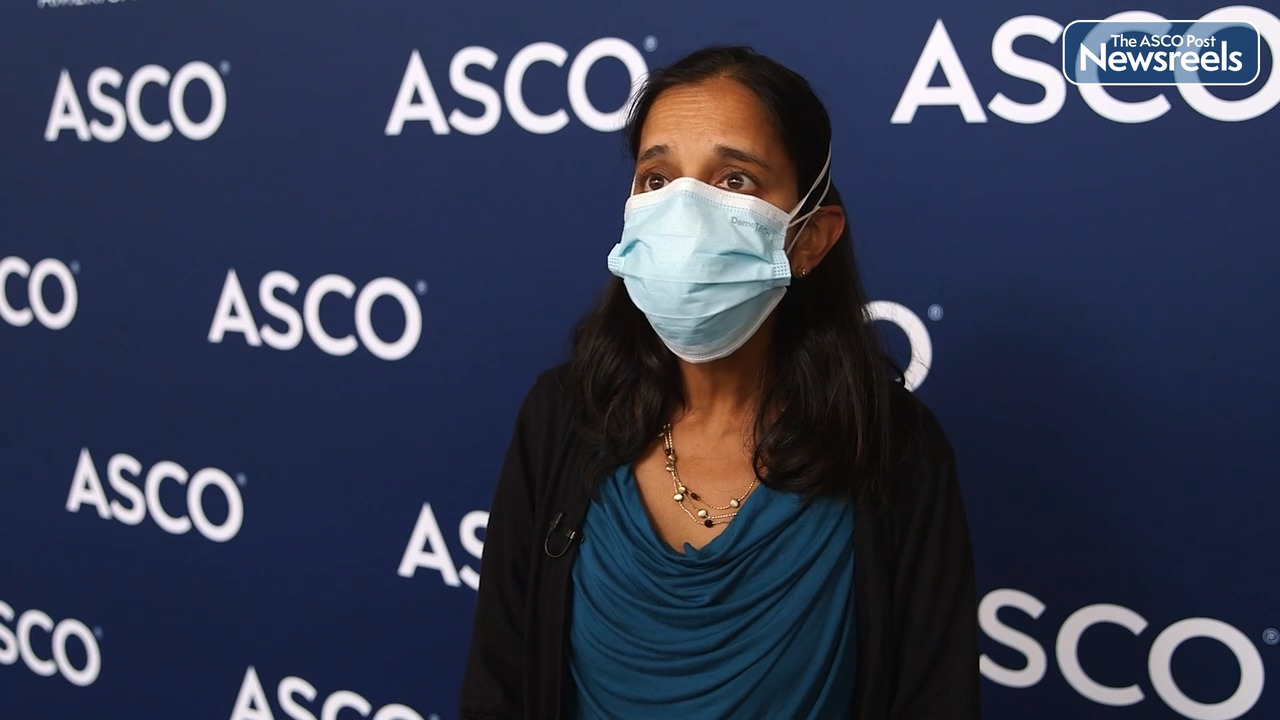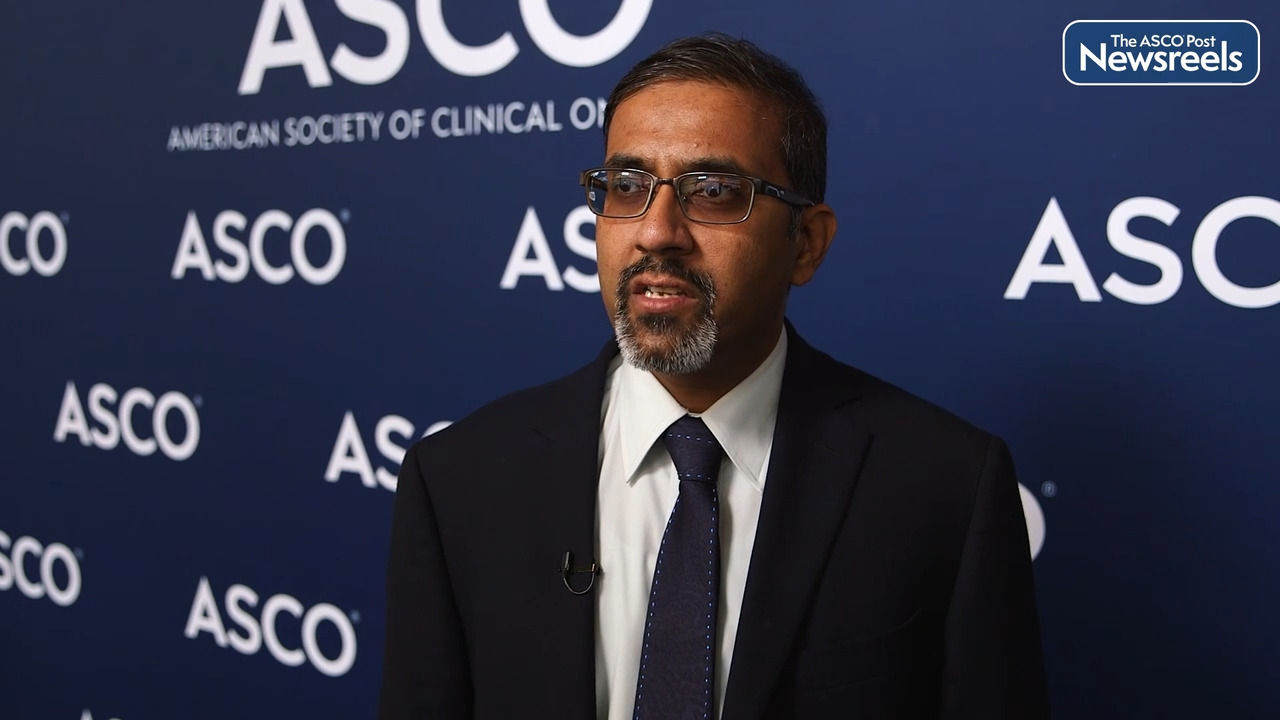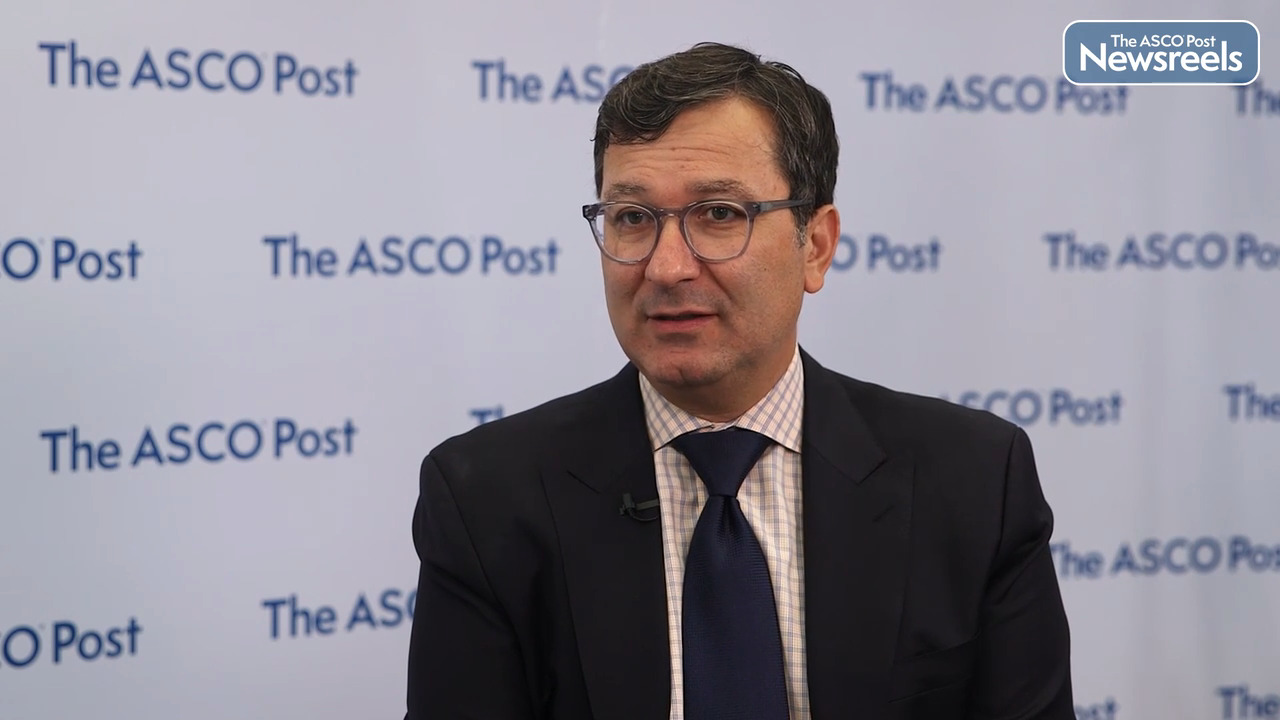Maxwell Oluwole Akanbi, MD, PhD, on Lung Cancer: The Effect of Screening on the Incidence of Advanced Disease
2022 ASCO Annual Meeting
Maxwell Oluwole Akanbi, MD, PhD, of McLaren Regional Medical Center, discusses the study he conducted, using the SEER database, to evaluate the impact of lung cancer screening recommendations on low-dose CT scanning. The data suggest that guidelines from the U.S. Preventive Services Task Force led to a more rapid decline in the incidence of advanced disease in the United States, especially among minority populations (Abstract 10506).
Transcript
Disclaimer: This video transcript has not been proofread or edited and may contain errors.
Lung cancer is the leading cause of cancer mortality in the US, and this is because most patients with lung cancer are diagnosed at advanced stages of the disease. Trying to make patients present earlier has been an elusive challenge, until in 2011, when results of the National Lung Cancer Trial were reported. This study showed that low-dose CT scan could improve survival in patients with lung cancer by making earlier diagnosis. Although this has been shown in clinical trials, the government has ruled out lung cancer screening in the general population without also actually knowing whether it is efficacious in the general population.
Our study was to evaluate the effectiveness of lung cancer screening in the US general population. You will use the SEER database, we analyzed data of patient diagnosed with lung cancer from 2004 to 2018. Our goal was to see if the incidence of advanced lung cancer reduced over this time. Our results showed that incidence of advanced lung cancer actually decreased in the US population following the rollout of lung cancer screening. This was particularly significant in minority populations. This is encouraging because there have been concerns that lung cancer screening may not be very effective in this population because they had limited access to screening facilities.
So, while this is encouraging, the work is not yet done. Our end goal is to make sure there's reduction in lung cancer mortality. There are still barriers between screening and mortality, so the next stage of our study will be to see whether this reduction in incidence of advanced lung cancer actually translate to reduction in lung cancer mortality.
Paul G. Richardson, MD, of Dana-Farber Cancer Institute, discusses phase III findings from the DETERMINATION trial, which showed that, for patients with newly diagnosed multiple myeloma, lenalidomide, bortezomib, and dexamethasone (RVd) with or without autologous stem cell transplant (ASCT) and lenalidomide maintenance to disease progression resulted in the longest median progression-free survival reported for each approach, and a highly significant difference in progression-free survival in favor of early transplant. While overall response rates were similar, rates of MRD favored early transplant also, but toxicity was greater and quality of life was transiently but significantly diminished. No overall survival advantage has been observed to date (Abstract LBA4).
Lisa A. Carey, MD, of the University of North Carolina Lineberger Comprehensive Cancer Center, and Hope S. Rugo, MD, of the University of California, San Francisco, Helen Diller Family Comprehensive Cancer Center, discuss phase III results from the TROPiCS-02 trial. This study showed that sacituzumab govitecan-hziy was more beneficial than single-agent chemotherapy in terms of progression-free survival in heavily pretreated patients with hormone receptor–positive/HER2-negative and unresectable advanced breast cancer (LBA1001).
The ASCO Post Staff
Manali I. Patel, MD, MPH, of Stanford University School of Medicine, discusses clinical trial findings on the best ways to integrate community-based interventions into cancer care delivery for low-income and minority populations. Such interventions may improve quality of life and patient activation (often defined as patients having the knowledge, skills, and confidence to manage their health), as well as reduce hospitalizations and the total costs of care (Abstract 6500).
The ASCO Post Staff
Apar Kishor Ganti, MD, of the University of Nebraska Medical Center, discusses results from the CALGB 30610 study, which showed a similar clinical benefit for once- and twice-daily radiotherapy administered to patients with limited-stage small cell lung cancer. While both regimens were well tolerated, patients who received radiotherapy once daily had better quality-of-life scores at week 3 and slightly worse scores at week 12. Patients believed the once-daily regimen was more convenient (Abstract 8504).
Karim Chamie, MD, of the University of California, Los Angeles, discusses final clinical results on combining the superagonist N-803 with bacillus Calmette-Guérin (BCG) in patients whose carcinoma in situ and high-grade non–muscle-invasive bladder cancers are unresponsive to BCG alone. Of note, cystectomy was avoided in more than 90% of patients with 2 years of follow-up (Abstract 4508).
